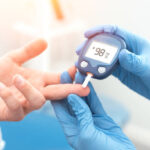Atrial fibrillation (AFib) is more than just an annoying irregular heartbeat; it can significantly impact your daily life and heighten the risk of serious issues like stroke or heart failure. If you’ve been managing AFib with medication but still experience symptoms or side effects, you might be considering more advanced treatment options. One promising choice is catheter ablation, a minimally invasive procedure aimed at correcting the abnormal heart rhythms associated with AFib.
But how do you know if catheter ablation is the right option for you? In this article, we’ll delve into how the procedure works, its benefits and risks, and who might be the best candidate. Keep reading to find out if this innovative approach could help restore your heart’s rhythm and enhance your quality of life.
What is Atrial Fibrillation (AFib)?
AFib is a prevalent heart condition marked by an irregular and often rapid heartbeat. It happens when the electrical signals that regulate your heart’s rhythm become disorganized, resulting in inefficient blood flow. Symptoms can vary from mild to severe and may include:
- Palpitations or a racing heartbeat
- Fatigue or weakness
- Shortness of breath
- Dizziness or fainting
While medications and lifestyle changes can assist in managing symptoms, some patients continue to experience persistent AFib despite these efforts. That’s where catheter ablation comes in.
Understanding Catheter Ablation
Catheter ablation is a minimally invasive procedure that addresses the underlying causes of irregular heart rhythms. Here’s a closer look at how it works:
- Mapping the Heart’s Electrical System: The procedure starts with the insertion of thin, flexible catheters into a vein, typically in the groin. These catheters are guided to the heart using advanced imaging techniques. Electrodes on the catheters help map the heart’s electrical signals and identify the areas responsible for the irregular rhythm.
- Ablating the Problematic Tissue: After identifying the abnormal areas, energy (either radiofrequency or cryothermal) is applied through the catheter to destroy or “ablate” the problematic tissue. This process interrupts the faulty signals, enabling the heart to maintain a normal rhythm.
- Post-Procedure Monitoring: The procedure usually takes a few hours, and patients are monitored closely before being discharged, often on the same day or the following morning
Benefits of Catheter Ablation
Catheter ablation provides several benefits for patients with AFib, particularly when medications have proven ineffective. Here’s why it’s becoming increasingly popular:
- Improved Quality of Life: Many patients report a significant decrease in symptoms such as palpitations and fatigue, allowing them to resume their normal activities.
- Minimally Invasive: Unlike open-heart surgery, catheter ablation involves only small incisions and typically results in a shorter recovery time.
- Long-Term Relief: For some individuals, catheter ablation can offer a lasting solution to AFib, potentially reducing or eliminating the need for ongoing medication.
- Reduced Stroke Risk: By restoring a normal rhythm, catheter ablation can decrease the risk of blood clots and strokes associated with AFib.
Risks and Considerations
While catheter ablation is generally safe, it does carry some potential risks, similar to any medical procedure:
- Bleeding or Infection: Although rare, complications can occur at the catheter insertion site.
- Damage to the Heart or Blood Vessels: There is a small risk of unintended damage during the procedure.
- Arrhythmia Recurrence: Some patients may need a repeat procedure if symptoms return.
- Rare Complications: These can include stroke or esophageal injury, but advancements in techniques and careful monitoring have significantly lowered these risks.
It’s important to discuss these risks with your doctor and consider them alongside the benefits based on your individual health profile.
Who is a Good Candidate for Catheter Ablation?
Catheter ablation isn’t suitable for everyone, but it can be a great option for specific groups:
- Medication Resistance: If you’ve tried medications for AFib and still have symptoms or experience intolerable side effects, ablation might be a viable alternative.
- Persistent AFib: Those with long-lasting or recurrent AFib episodes that affect their quality of life may find this procedure beneficial.
- High Stroke Risk: If your doctor thinks that restoring a normal rhythm is essential for lowering your stroke risk, they may suggest ablation.
- Younger Patients: Catheter ablation can be especially attractive for younger individuals who wish to reduce long-term dependence on medication.
Your doctor will assess your overall health, the severity of your AFib, and any underlying conditions to determine if catheter ablation is right for you.
Recovery and Aftercare
The recovery process after catheter ablation is generally smooth, with most patients returning to their normal activities within a week. To ensure the best outcomes:
- Follow Post-Procedure Instructions: Your doctor may advise you to avoid strenuous activities for a few days and to take prescribed medications to prevent clotting or arrhythmias.
- Regular Check-Ups: Routine follow-ups with your cardiologist will help keep track of your heart’s rhythm and overall health.
- Adopt a Heart-Healthy Lifestyle: A balanced diet, regular exercise, and effective stress management can enhance the benefits of catheter ablation and promote long-term heart health.
Is Catheter Ablation Right for You?
Determining whether catheter ablation is the appropriate treatment for your atrial fibrillation depends on your unique needs and situation. While it’s not a universal solution, it provides hope for many AFib patients looking for a more effective and sustainable treatment.
At Heart Practice, our skilled cardiologists focus on assessing and managing AFib with the most advanced techniques, such as catheter ablation. We are committed to supporting you throughout the entire journey, from diagnosis to recovery, providing care that is customized to your individual needs.
Are you ready to take charge of your heart health? Book a consultation with Heart Practice today and find out if catheter ablation might be the answer you’ve been looking for.











